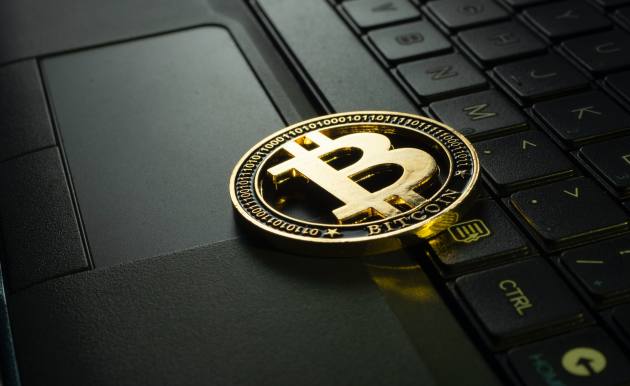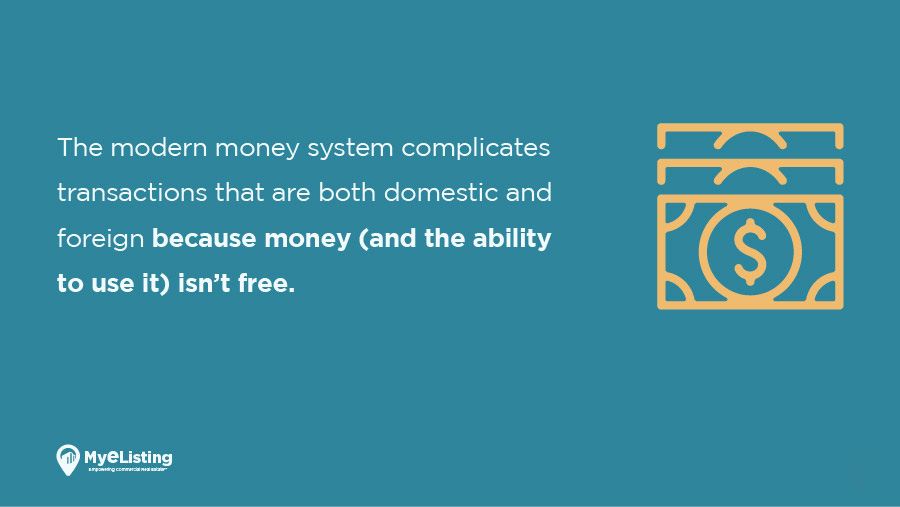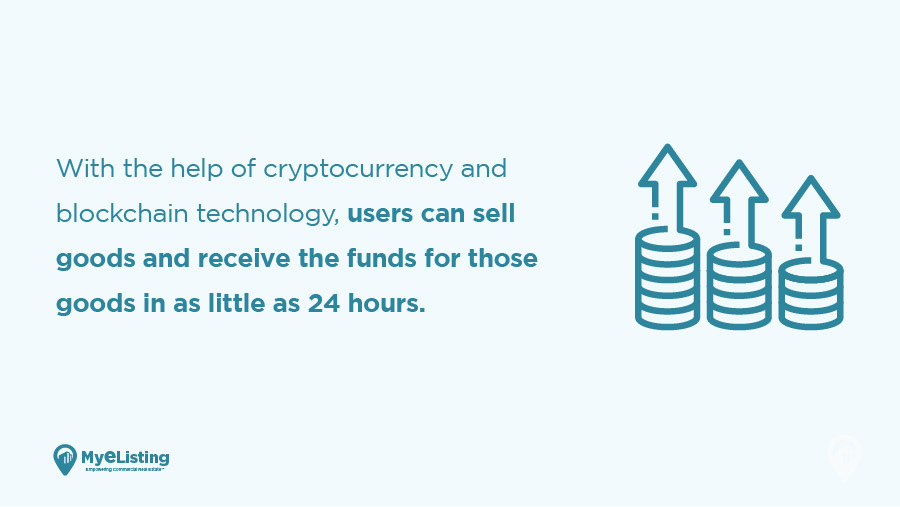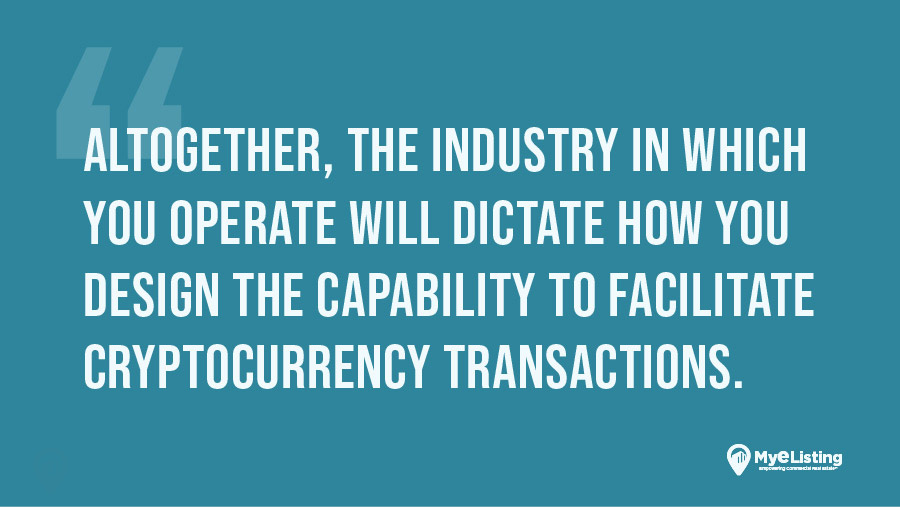How Cryptocurrency & Blockchain Lead to Greater Payment Accessibility

Specializes in providing actionable insights into the commercial real estate space for investors, brokers, lessors, and lessees. He covers quarterly market data reports, investment strategies, how-to guides, and top-down perspectives on market movements.

Many of today’s traditional financial services require intervention from trusted third parties, like banks and other financial institutions that store, lend, and distribute money.
Every time you transfer money to and from your bank account, those funds need to be “cleared” by your bank. In other words, they need to be validated and made available for you to use.
This clearing process may see and even require intervention from even more third parties, like intermediary banks and clearing houses.
Larger deposits tend to take longer than smaller ones, sometimes up to five business days, and the chance of funds clearing and being made available for use on the same day between two separate parties tends to happen only when both parties use the same bank.
And that’s not all: The time it takes for funds to clear depends on your banking history, such as how often you tend to overdraft or how low your account balance tends to drop, and even government regulations.
In short, there’s a lot of oversight and third-party intervention that goes into finance and banking. But what about those located in certain regions & countries of the world that don’t trust their government’s financial system, like those in Lebanon? How do they get around liquidity crises caused by government corruption, wasteful spending, and skyrocketing deficits?
Let’s take a look.
Two Notable Problems With the Modern Money System

The modern money system complicates transactions that are both domestic and foreign because money (and the ability to use it) isn’t free.
Why does it complicate it, and why isn’t it free? Because those behind today’s convenient online payment processing systems that most of us now take for granted need funds to continue operating those systems that make the everyday consumer’s life easier.
Too Many Touchpoints
Those online payment processing companies make their money with transaction fees, surcharges, authorization fees, convenience fees, and other forms of compensation paid at the point of sale. The businesses that use these payment processors to transact payments, therefore, lose a certain percentage of profit.
And because everyone involved in processing a transaction, such as the issuing bank, the credit card association involved, and the payment processor, wants to get paid for their services, these businesses often pass these extra costs down to the consumer.
Therefore, the consumer’s initial transaction becomes more expensive because they’re indirectly compensating payment servicers that allow them to conveniently swipe their card and walk away.
This model varies from industry to industry, but this is the short of it.
Varying Transaction Speeds & Costs
Transferring money takes time because those funds need to be cleared, transferred, and settled. As previously mentioned, some significant deposits can take up to five business days to be made available for use. This time period may stretch even longer, depending on your financial habits.
The number of Americans living paycheck to paycheck increased in June 2022 to about 60%, up from April’s 52%. And when these Americans need money, they often need it sooner than later.
But since fiat currency is never transferred directly from payor to payee and is instead bounced around from node to node, it takes time to receive your funds.
This issue gets even worse when transferring funds internationally. Weaker currencies that don’t enjoy the strength that the US dollar and euro enjoy take even longer to transfer across borders, and sometimes, it’s prohibitively expensive to transfer the money in the first place, like in the case of Lebanon, which is the world’s fifth most expensive country to send money to.
The Advantages of Crypto as a Payment Vehicle

Utilizing cryptocurrency as a payment vehicle not only speeds up transaction speeds but also greatly reduces the number of fees associated with other digital payment processes that transfer traditional currencies.
Not only that, but it also makes the very act of buying and selling much faster: With the help of cryptocurrency and blockchain technology, users can sell goods and receive the funds for those goods in as little as 24 hours.
No One Technically “Owns” Cryptocurrency
Cryptocurrency relies on decentralized blockchain networks for peer-to-peer transaction verification and prevention against fraudulent activity. Instead of being centralized and operated by a system of banks, cryptocurrency’s decentralized nature lends itself to faster transaction times, sometimes as little as an hour.
And because no one technically owns cryptocurrency, payments can go directly from payor to payee much faster. No government regulations need to be met, no clearing houses need to be involved, and you don’t have to wait for a bank to make your crypto funds available to you.
But Sometimes, Cash Still Needs to Be Used
This, however, can only occur when both the buyer and the seller agree to settle the transaction in cryptocurrency. It’s common for a buyer to send crypto and for the seller to want that crypto transferred back into cash.
This is when a third-party intermediary may get involved. And, depending on the industry and what you’re buying and selling, the government may require that those deals be settled in fiat currency, meaning the transaction isn’t final until a fiat currency is present and, therefore, triggers a taxable event.
Cryptocurrency Doesn’t Sacrifice Security for Speed & Efficiency
Cryptocurrency relies on cryptography to keep transactions confidential, as well as a peer-to-peer network. There is no centralized bank to rob, hack, or break into.
Each blockchain in which cryptocurrency transactions take place possesses multiple copies of the same ledger, and the only way to fraudulently leverage that blockchain is to alter this ledger.
This is essentially impossible, given that any alteration in this ledger that does not match up with all of the other copies present on that blockchain will immediately alert the rest of the blockchain to this fraudulent activity.
And, reliable cryptocurrency wallets (how you digitally store your crypto) adhere to common cryptocurrency security standards, like 2-factor authentication and SSL/TLS encryption.
Capturing the Capability to Facilitate Crypto Transactions

Altogether, the industry in which you operate will dictate how you design the capability to facilitate cryptocurrency transactions. Independent retailers can set up crypto point-of-sale terminals, both online and in-store, that distribute settlement payments to the merchant in as little as one day.
On the other hand, if your industry requires a longer sales cycle with third-party intermediaries involved, like the commercial real estate industry often does, cryptocurrency and blockchain technology can help take this process down from 90 days to as little as two by tokenizing property title ownership and using blockchain technology to enhance title transfer.
More on that in our next piece, “Cryptocurrency’s Use Cases Within the Commercial Real Estate Industry.”
List & Browse Commercial Real Estate for Free on MyEListing.com!
You can list and browse commercial real estate for free right here on MyEListing.com.
Simply sign up for a free account and get unlimited access to accurate local market intelligence, customized property type alerts, comp software, and more.
Article Search
Share
All Article Categories








